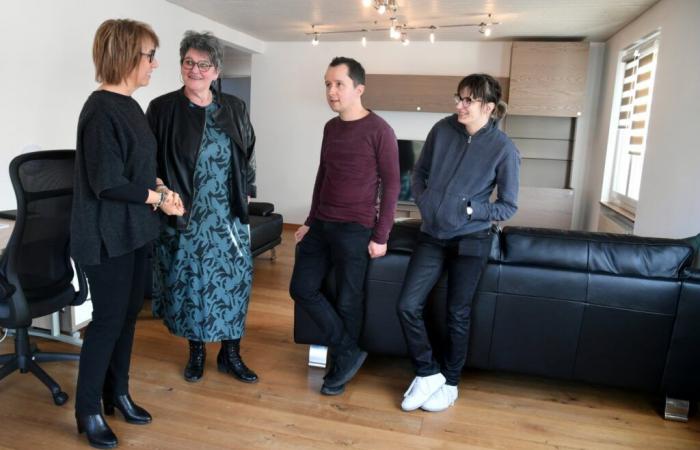Four of the six places have already been allocated to Castors residents because they meet the selection criteria: they work between 50% and 70%, have the potential for empowerment and wish to take this step.
They will have to take classes three afternoons a week, and be able to fend for themselves at night and on weekends, explains Ingrid Perrolle, responsible for this project and one of the three participants in this project. With 1.5 FTE, this empowerment structure will also cost much less than placement in an institution.
Two of the new residents, Laura and Robin, are delighted with their arrival. Robin, 26, cook at Les Castors, had been waiting for this empowerment for a long time. For Laura, 34, active in office automation in the morning and carpentry in the afternoon at the protected workshops, after the joy of the beginning, there is now a little worry about the implementation of these new places and rules of life.
A key certificate
As for Minister Nathalie Barthoulot, she recalls that this opening fills a gap in the Jura system for caring for people with disabilities. Residents will have to achieve 80% of the training objectives, and will be offered a third year if they do not reach the level.
An exit certificate will, for example, allow them to rent an apartment more easily if they need to convince owners of their complete autonomy.
On the financial side, beneficiaries will have their pensions, additional benefits and salaries to finance their stay. The Castors are only there to provide services to the CAP, which is placed under the responsibility of the State, specifies Philippe Perriard.
The CAP is intended to eventually become autonomous itself, like its residents. Two places are still free.






